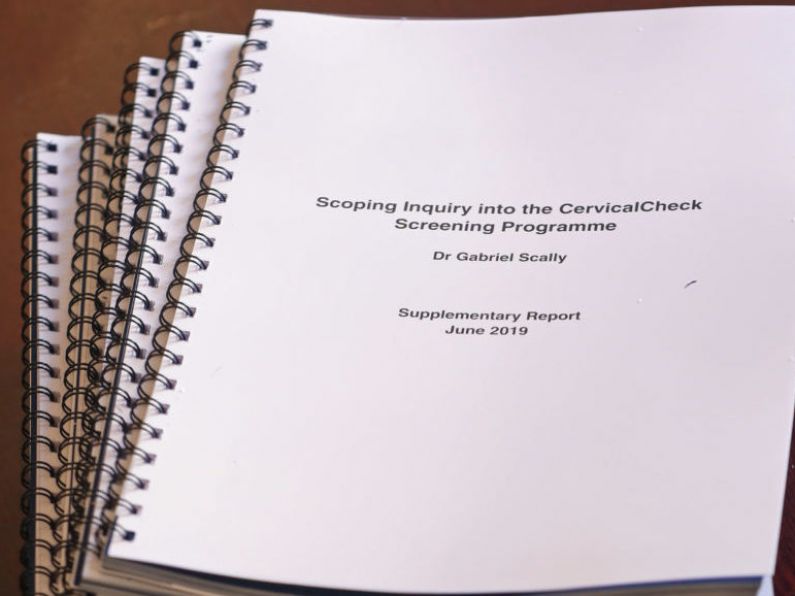Cate McCurry, PA
A number of women associated with a group advocating for those affected by the CervicalCheck controversy have been refused treatment by clinicians, it has emerged.
One woman described being “treated like a leper” after she was questioned by a clinician about any association with the 221+ group.
Some clinicians asked if they were a member of the group before considering treating them.
The 221+ advocacy group was set up in July 2018 by Stephen Teap, Lorraine Walsh and the late Vicky Phelan.

Publishing his 39-page report on the implementation of recommendations from his 2018 scoping inquiry into the CervicalCheck screening programme, Dr Gabriel Scally said some women associated with the group were made to feel like “second class citizens”.
After the publication of the report, Ms Walsh said some people involved in the group had found it difficult to find clinicians to treat them.
“In some cases their consultants will not see them any more,” Ms Walsh said on Wednesday.
“In other cases, they call up the consultant’s office and they’re asked are they a member of 221, and if they are, they’re told that unfortunately they don’t have any space to take them on.
“It’s very sad because a lot of these women need continued care and are dependent on their clinicians to ensure their health for the future.”
In a statement, the group said it had “mixed feelings” about Dr Scally’s report.
“It commends fair progress made that is important because protecting and strengthening the future of screening is critically important,” the group said.
“It also reflects our long-expressed concerns that there remains an active determination within the Irish healthcare system to avoid dealing up front with things that go wrong and with respecting those who point out those missteps.
“There are a number of further points highlighted in today’s report that reflect our continuing concerns.
“The experience of being treated as ‘second-class citizens’ where clinicians have questioned women about any association with 221+ before considering treating them.
“The absence of respect for the role of patient advocates and treating them as equal partners in the system.
“The limited effort to put resolution, to whatever degree possible, of the damage done to individual patient/doctor relationships by the inadequacy of much of the communication that has taken place.
“The lack of progress on developing effective, sustainable, alternative mechanisms to avoid lengthy and traumatic legal proceedings and court appearances. We fully agree that litigation is a sad indictment of any system for dealing with possible clinical errors.
“Patients should be told the truth when things go wrong and doctors ‘must’ rather than ‘should’ be open and honest with patients
“The necessity for future oversight and leadership of the cervical screening programme should not be neglected.
“In everything that we say and do, we exclusively and unapologetically take a patient perspective rooted in real-life experiences.”
Mr Teap, whose wife Irene died of cervical cancer, called for the enactment of the legislation in respect of patient safety and open disclosure.
“This process began in 2019 with Leo Varadkar as Taoiseach. It’s now been handed over to Micheál Martin as Taoiseach and it now going to be handed back to Leo Varadkar very shortly,” he said.
“It hasn’t moved on in any shape or form. This is the most important thing that Vicky Phelan wanted to see through and this is the biggest thing that is left hanging here still today.
“Since March 2022, this report says that this hasn’t moved a step.
“Micheál Martin says we will get it done by Christmas, that’s just smoke.
“This is Ireland. We know the Government that we’re dealing with, it’s obviously going to take steps.
“But we have to start somewhere, we have to have something in place with regards to the Patient Safety Bill, so they need to get moving.”






